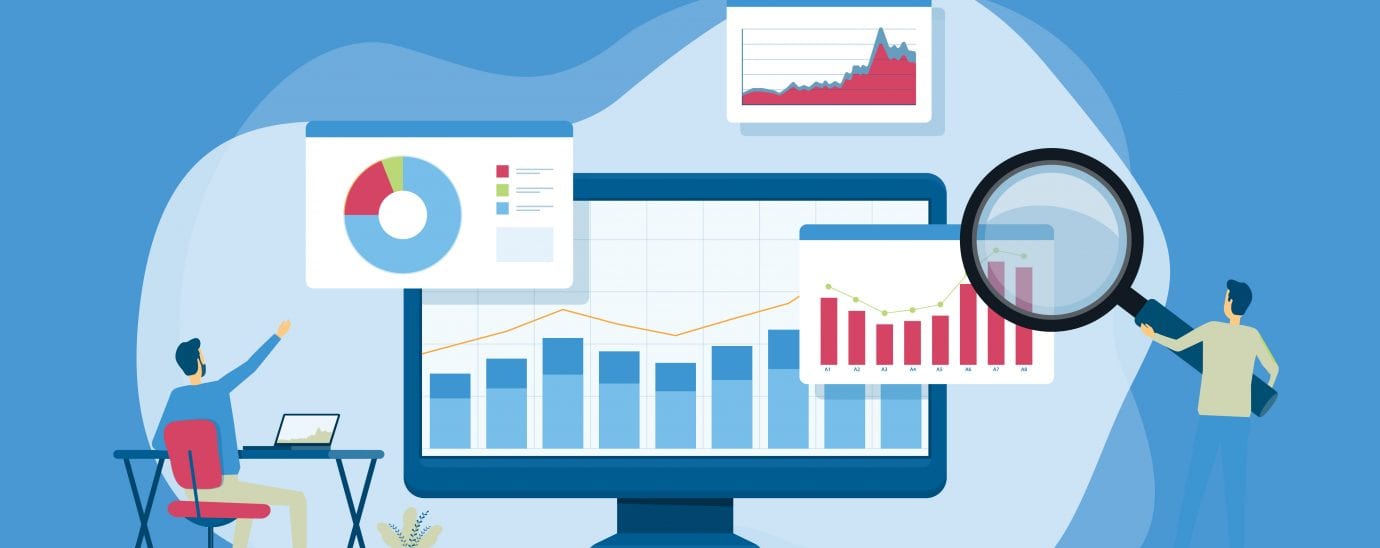The top four challenges to the data journey

Neil Martin, director at Qbase, explores the common challenges he comes across when supporting organisations to capitalise on their data
Data is an organisation’s most valuable asset and not capitalising on it can be a costly oversight. Yet, many companies are still sitting on this underutilised goldmine.
Better data can help streamline operations, boost productivity, and give you crucial insights to get a competitive edge and make better business decisions. In fact, according to a study by Bain & Company that looked at more than 400 organisations, companies with advanced data analytics capabilities were five times as likely to make decisions faster than their peers.
But, to effectively leverage your data in this way, it needs to be high quality, fully integrated across the business, and presented in a clear, useful format. And with the data journey often being complex, we come across some common challenges time after time. Here are our top four challenges and how to solve them.
1. Knowing where to start
Organisations accumulate a huge amount of data over time, growing exponentially every day. This data is gathered across multiple business functions, often from separate sources and in different formats, so the task of bringing it all together in a useful, actionable way can understandably be overwhelming. The key is to break the process down into smaller, more manageable stages. First, you need to understand exactly what information and processes exist in your organisation, where this information is stored and in what format. The way to do this comprehensively is through a landscape analysis, the process of cataloguing and measuring all the data, identifying and building out the rules that govern the data, and establishing the tools and technologies you need. You’ll need several particular data skills to run this effectively, so if you don’t already have these in your organisation, consider outsourcing or enlisting the help of a consultancy.
2. Reluctance to transition from manual processes
To analyse your data quickly and effectively, you need to be able to access it in real-time from any location. However, a surprising amount of organisations still perform some of their core processes manually, making the data journey much more complex. For example, we’re currently working with an organisation that manually built and inputted marketing and financial information into spreadsheets and printed out work orders and schedules to work from in the office. Not only did this make reporting a key issue, but when staff were required to work from home through the first lockdown, they struggled to access the information they needed, disrupting operations and putting the business at incredibly high risk.
Changing ways of working requires a considerable amount of resource and buy-in from the whole team. Although the transition might seem daunting initially, it’s crucial to invest the time, and money, especially when you take into account our reliance on digital processes for remote working through the pandemic. While data isn’t typically ROI-generating, it can make all the difference in your organisation’s performance and even its survival.
3. Know which tools and technologies you need
There is a huge range of data management platforms and tools on the market, so finding the best solution for your requirements can be tricky. A landscape analysis can help with this, but before you get embroiled in the various offerings, the first step is to audit the technology your organisation already uses and what it allows you to do compared to what you need it to do. From there, you’ll be able to identify the gaps and target your search. For example, you may have a CRM in place, but does it allow you to combine your sales and marketing data to create recipient lists for targeted campaigns? If not, you may benefit from a marketing automation add-on or platform. If not, you may benefit from a business intelligence dashboard. However, before investing in something new, make sure that you’ve fully investigated the capabilities of your current platforms. You might already have the solution in your toolkit, or you might be able to make a simple upgrade. Not only would this usually come at a lesser cost, but you’d also be working with a technology you’re already familiar with.
4. Bringing disparate data and systems together
While some organisations have a range of advanced technologies to help them manage their various business processes, this doesn’t necessarily mean they’re at a more advanced stage in their data journey. As a business grows and adapts, it naturally accumulates many different tools and technologies. But as these are usually bought in isolation, the data in these different systems are siloed. Combining these datasets and creating a unified view allows you to streamline interdepartmental communications, makes it easier to extract valuable information and insights, and simplifies reporting. Centralising all your data makes it easier for the other systems to access and store information. Again, data integration requires some particular data skills. So if you don’t have these within your organisation, consider recruiting (a data person is just as important as an HR or finance person) or outsourcing.
READ MORE:
- After 25 years, Microsoft will retire Internet Explorer in 2022
- The next generation of sound: Apple Music to rollout Spatial Audio with Dolby Atmos
- Why customer conversations are vital for brand survival in a post-COVID-19 world
- What can corporates learn from digital transformation in the COVID era?
While your data might not be your immediate priority in these challenging times, it’s worth investing the time and resource to bring it into a useful format. Not only will it help to streamline your organisation and provide insights to boost profitability and gain a competitive edge, but it can also make all the difference for the productivity and adaptability of your remote workforce.
For more news from Top Business Tech, don’t forget to subscribe to our daily bulletin!
